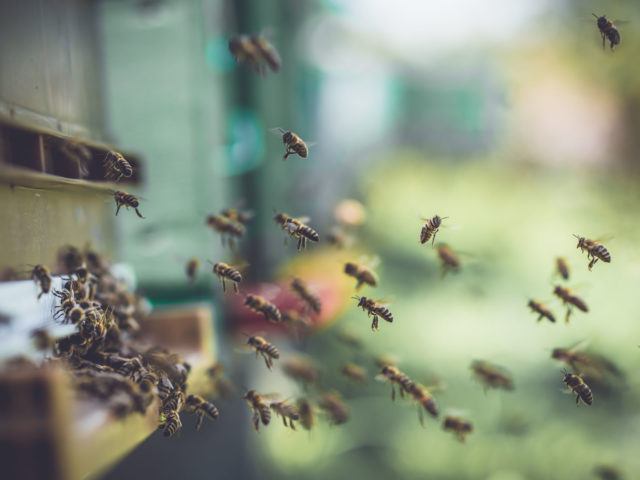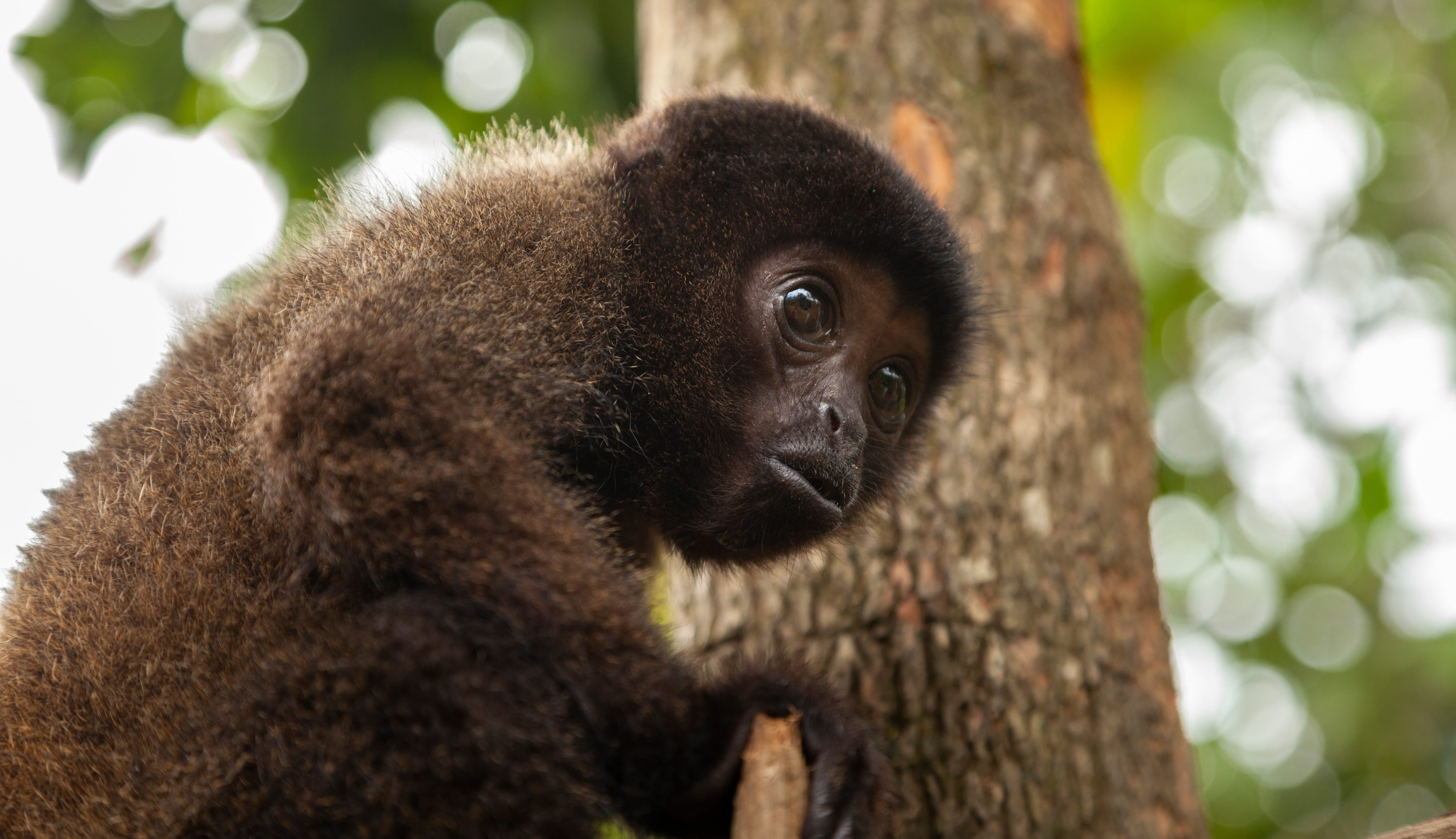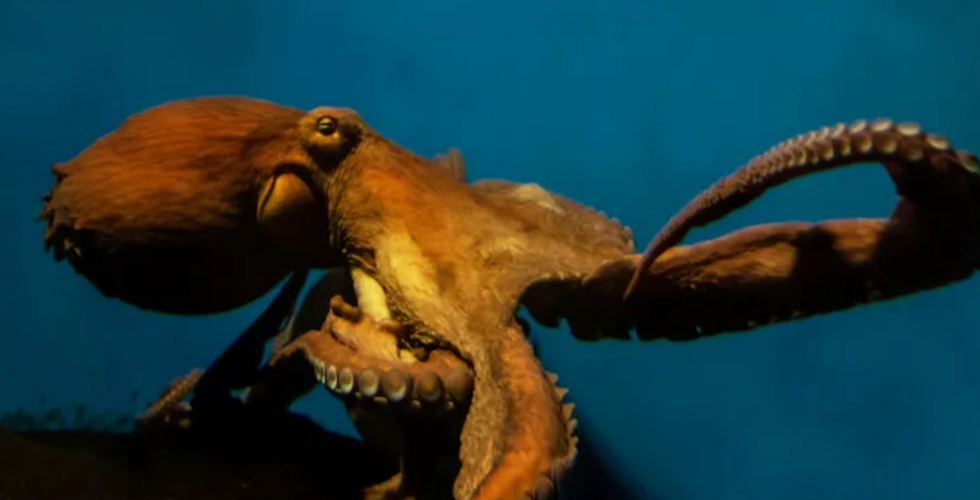- DEN Enews
- Posts
- DEN Enews
DEN Enews
Week of The Baptism of the Lord

Matthew 3:17
And a voice from heaven said, “This is My beloved Son, in whom I am well pleased!”
Have you ever considered that God may be saying the same thing about you; that you are a beloved child in whom God is well pleased? I pray you do. For all your efforts to save this beautiful Creation in all it’s diversity and which is so worthy of all your efforts safeguarding the integrity of God’s Creation and respecting, sustaining and renewing the life of the earth, you are beloved.


Amour Love was born in rural New Brunswick where storytelling is a very important and meaningful way to convey information. But not all stories are told equally or as often. Amour Love’s Story Time seeks to share the essential values of being kind to those who look different, loving yourself and the environment as well as respecting diversity and inclusion.
It is DEN’s prayer that these dramatic readings of the works of DEN poets will spark a flame and ignite Epiphany moments, inspiring us to care for God's creation and each other in a deeper, richer way. Hope you will join us on Zoom.
Please feel free to share within your networks.

Lots of news and events with the Save Our Old Forests Group. Check out them all in their newsletter this week. https://mailchi.mp/c125cf7aa513/soof-newsletter-sunday-april-1029?e=fbcc1c5e66

There is a proposed development for this area with HRM and many efforts to divert this plan and recognize this ecosystem as worthy of saving. Please go to this webpage to “understand the seriousness of Sandy Lake’s situation.”
Stay tuned for more news about an opportunity to listen to a presentation about its wonderful ecology and pressures facing Sandy Lake.
++++++++++++++++++++
Grandma (aka Claudia Zinck) has been hard at work organizing a seed sharing project and so it was very timely that Grandmother Birch talked about seeds in her newsletter this week. Shared freely with permission, here is this week’s edition. Learn more about Grandma’s project in her Grandma’s Going Green article below.
Courage my love!
“To our young selves there is no difference between the small questions and the big ones. We follow our curiosity to the edge of our understanding and then ask whoever is around what lies beyond it. I have spent my adult life fighting to keep what I possessed as a child: the ability to see the biggest questions sitting inside the smallest ones and the willingness to try to answer them.”
― Diana Beresford-Kroeger, To Speak for the Trees: My Life's Journey from Ancient Celtic Wisdom to a Healing Vision of the Forest

Planting Black Walnuts. For the love of it!
Time and again I have watched children who have never handled a seed before know exactly what to do with them. Firstly, and perhaps most importantly, all seeds insist on being admired. Children know this. And children are known to admire seeds exquisitely. Seeds are Holy after all. And by their Holy nature seeds inspire childish wonder and unencumbered reverence. It is not unheard of for a particularly revered seed to end up in a child’s pocket. This is perfectly acceptable and likely even desired by certain seeds. Carried about, a kind of rumination ensues. Seeds in pockets, touched by sensitive, inquisitive child fingers undergo a kind of mental metabolization and become inscribed into human consciousness. Before words seeds are thus known and enjoyed. Known by touch as much as sight, a bean seed is a bean seed; corn is corn; acorns are acorns, and horse chestnuts are the makings for wild-heart adornments – long before diamonds or pearls.
When I was a child my Dad taught me that certain seeds – like Jack Pine – require fire to be released from their protective cones. Other seeds require a journey through the guts of birds, deer or even a mouse before they can awaken to seek the sun. A seed, seemingly inert, knows the precise temperature, moisture, and daylight hours needed to animate.
A human child, guided by a caring human adult, can be initiated into the ancient and secret understanding – that to lay an acorn, just so, in the soft, moist soil provides the necessary orientation for the tenderest tap-root of a would-be mighty oak to venture deep, deep into the dark earth. Thus, a small child can conjure an oak tree. An oak tree that can live for hundreds, even thousands of years. This dear human, this is our true lineage of power. Power of the best, purest and most Holy.
It is my prayer for this coming New Year that this powerful, ancient relationship we have with seeds – co-inspired and timeless – germinates in each of us the courage to live fearlessly, generously, and with abiding reverence and tenderness towards our Holy home, the Earth. After all, we all have it in us to plant seeds and grow forests.

with thanks to Eva Evans & Jesse Hamilton
Indigenous Papuans in Indonesia are fighting to cancel plans of a mega-deforestation project that will clear more than 2 million hectares, damage rare habitats, and release a staggering billion tons of carbon into the atmosphere. The environment is under attack and there is a military guard assigned to each Indigenous village to intimate against the right for free, prior and informed consent. The destruction has already started, but Indonesia does care about their environmentally friendly image abroad. Involved parties say if a million voices demanded answers it could cause them to back off. Sign now to stand with the communities fighting here to protect our natural world.
The National Observer recently reported that Bayer Crop Science inappropriately influenced Canada’s 2021 scientific evaluation of the pesticide imidacloprid, which Bayer sells. Imidacloprid is a neonicotinoid insecticide known for its negative effects on bees, birds, and aquatic life. The European Union banned “neonics,” including imidacloprid, in 2018 because of environmental risks. Canada initially proposed to end outdoor use of these chemicals. However, the federal government later reversed this decision, with sources suggesting it was done at Bayer’s request. This petition is demanding an independent scientific review of the decision, free from industry influence. Send a message to Canada’s Health Minister asking to support this review and ban these harmful pesticides.
Doritos, Cheetos, and Lays potato chips are still made with palm oil grown on stolen and bulldozed rainforest land. This is destroying the home of the yellow-tailed woolly monkey, along with hundreds of other endangered species in the Peruvian Amazon. PepsiCo is the maker of these snacks and they promised to go completely deforestation-free by 2022. One of its suppliers, Ocho Sur, is sourcing illegal dirty palm oil. These palm oil operations are massively growing in Latin America and many suppliers are flying under the radar due to weak regulations. Calling out major brands can help keep this in check, so please sign the petition asking PepsiCo to keep their promise to stop sourcing deforestation palm oil.
Right now, a Spanish company is racing to open the world’s first octopus mega-farm, where over one million of these intelligent, sentient creatures will be crammed into tiny, barren tanks, enduring immense suffering. Octopuses are known for their complex behaviours and sensitivity. They work together to find food, and sometimes share dens. Farmed octopuses will face stress, aggression, and slow deaths in these conditions—all because of a loophole in the EU’s animal welfare laws.
Amazon is one of the biggest companies in the world – it sold $514 billion worth of goods and services in 2022. Millions of purchases mean millions of parcels. And that meansmillions of deliveries clogging up streets and lungs – creating unnecessary traffic, fumes, and climate pollution throughout our towns and cities. With online shopping projected to massively grow over the next couple of years, this problem is only going to get bigger. If we can convince Amazon, the biggest and most influential delivery company in the world, to move to zero emissions deliveries, then we’ll drive change across the entire sector. For example: Phase-out fossil fuel vehicles and make 100% zero emissions last-mile deliveries, including deliveries made by contractors and subcontractors. Include an increase in cargo bike deliveries, neighborhood delivery hubs, and other zero emissions options

With thanks to Claudia Zinck
My kind of Protest
July 2024 Grandma has been watching videos from Greenhorn Grove. In one reel he ends with the words, “That is MY kind of protest!”
He believes that growing a garden is a form of protest against climate change.
I like the idea. The big bad nasty world is determined to live this life of waste and reduce human health and exercise.
Growing a garden is the opposite. It is a form of exercise that gives nutritious food. It goes against the norm and therefore is a rebellion, or as Greenhorn Grove says, a protest.
This protest will involve carrying hoes, rakes, shovels and more to a spot where you dig in the dirt and throw in a few seeds. Then you care for those plants till you can consume them or enjoy their beauty. That sometimes involves struggle, innovation and just plain work.
How could I plan a protest? It needs to be useful and purposeful, but one that may change the provincial environment. Maybe I could just change a few people by the “power of one”. (One person says or does something seen by another person, and soon two people are saying or doing the same, which turns into four, eight, sixteen people, and so on; all because of that power of one person.)
October 2024. Attending Enviro Day in East River in June taught me that people will accept seeds. Needing to disperse a bounty of seeds I had called on neighbouring parishes in two regions. They accepted the extra seeds. That taught me that we have this great network in Anglican Regions for moving small packets of items like seeds.
Grandma has another dream!
OK, this is a big one. There are so many “What ifs……?”.
What if, somehow, we had packs of seeds to go to every parish in a region? The seeds would go to their regional meetings and be taken home by the parishes.
What if every parish received their pack. Inside each pack is a letter from Grandma explaining what we are trying to do and asking them to plant a pack of seeds. The parishes could use that as part of their Rogation or any other service or community event.
So, it is back to “what should they plant?” Maybe grains would work. No, a pollinator mix of flower seeds! They could be planted anywhere a person could scratch a bit of ground. Give kids a spoon and send them out to dig.
What if that happened? All of a sudden, the birds and bees have an excess of food. Beekeepers may get a good crop but plants in general will increase due to more pollination. More plants mean more oxygen for us. Grandma can only see good things coming from this.
November 2025 We have 10 regions in our Diocese, In 2022 we had 94 parishes and 21,892 members. That would be a BIG project; it is too big for one person in one year.
Grandma will start working on TWO regions. The South Shore that she is in and part of Rivers to Trails next door.
We need to get the seeds in envelopes. Making two thousand envelopes is too much but we can buy size 1-coin envelopes. Self-inking stamps could label the envelopes. We will need funds for this project
January 2025 After a month of researching grants, prices for supplies, and a dozen other factors Grandma sends a proposal to DEN’s leader, Rev. Marian Lucas Jeffries.
I told you it is a BIG dream, but, it is going to happen!
DEN of course is backing my project. The last word I had from Rev. Marian is that she is using this project as part of her column in the Diocesan Times next month.
I’ll give updates as I work through this plan.
If anyone in another region wants to work on a similar project even if just for your parish, I’m here to help. You can always reach me at [email protected]
Craft
I promised I had a craft for this week. We are having snowstorms, but I am concentrating on spring. Here is my tin can bee. Start saving some cans. I found some cute things to make that might chase the deer out of my gardens.
Paint the tin can yellow. I chose different sizes to find the best-looking bee can. The black strips could be painted. A black marker would work well but even better I am using black tape next time. Use floral wire to shape wings with extra wire to wrap under the can and back up to the bottom of the wings. Needle-nosed pliers work well to twist that wire tight. Glue, (hot glue) the eyes to the front. A black marker may work well to make the face.
Attach a string where you twisted the wire tight and hang him off the veranda or in a tree. Whimsical, but so much fun to make.
Since we are planting pollinator seeds, maybe tin cans bees would be a perfect mascot for the Seed Share project.
Much better examples with a video tutorial can be found below. Eyes can even be made with two bottle caps. Have fun!


Something to eat.
Oh, these are so good! Somewhere between Christmas and New Year, I made something that gave me three leftover egg whites in my fridge. Although there are many suggestions to use them, I rediscovered macaroons.
These aren’t the pretty, multi-coloured puffs with a filling between them. They are mounds of coconut baked just enough to brown them. I also had bags of coconut that were “older”, so this was a perfect match.
Best Ever Macaroons
3 Egg whites
2/3 cup sugar
Vanilla extract
Pinch of salt (optional)
5 cups of coconut of your choice
Mix. If it seems too wet add a couple spoons of cornstarch. Drop by spoonful and bake ay 350F for 20 minutes or until the bottoms are brown and tops start to turn from white to light brown.
So easy! So good!

We invite you to read the following article and meditate on being a beloved child of God.
We love to hear from you. Email us with your comments, ideas, submissions.





